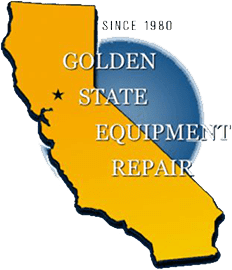>
Three Ways That Business Owners Can Lower Heating and Cooling Costs
Three Ways That Business Owners Can Lower Heating and Cooling Costs
Wednesday, August 9, 2017 6:39 PM
Energy waste is a costly problem for many businesses. On average, close to one-third
of the energy used in a commercial structure is wasted.
Much of that loss occurs because practices related to heating and cooling the building. This means business owners can greatly reduce waste by rethinking how they view and utilize those systems.
Below are 3 ways that business owners can drastically cut their heating and cooling bills.
Upgrade Obsolete or Inefficient Equipment
The first place to begin the process of reducing heating and cooling costs is with the equipment itself. Many businesses use outdated or defective equipment that costs them hundreds or thousands of dollars per year in avoidable expenses.
If you find your equipment is old or fails to function efficiently, then the best step is to replace it with newer, energy-efficient systems. Advances in heating and cooling technology greatly reduce operating costs for businesses that install up-to-date equipment.
Though buying an updated system costs money, there is little doubt that it is an expense worth bearing. The investment in new equipment will pay for itself through significant energy savings and a reduction in repair costs.
Install and Use Automated Controls
Another way you can save on heating and cooling costs is through the use of automated controls. For smaller facilities, replace ordinary thermostats with "smart" units that can be programmed, enabling you to decide when to turn heating and cooling on and off.
As a result, heating and cooling cost are lowered by eliminating periods of needless usage. For example, if your business operates only from Mondays through Fridays, a programmable thermostat will reduce or shut down usage during the weekend. Simply set up a schedule once, and the thermostat will take care of the rest.
Larger facilities will benefit from automated controls as well, but will likely require more than a simple thermostat upgrade. The complexities associated with heating and cooling a larger building will dictate the use of controls with greater flexibility and capabilities.
As such, you will want to consult with a heating and cooling professional to determine how more sophisticated automated controls will meet the needs of your facility. For example, such controls may be computer operated and include zoned heating and cooling to better distribute conditioned air as needed.
Change Filters on a Regular Basis
The last way business owners can decrease energy waste associated with heating and cooling is simple and inexpensive, but no less important: replacing filters. Periodic replacement of these filters in your system is critical to efficient operation.
These filters capture dust and all kinds of particles that would otherwise enter the system and accumulate on ducts, blower equipment and evaporator coils. Dirty filters increase the strain placed on your heating and cooling system by making airflow difficult.
This increases operating times to achieve the same level of comfort, and it also shortens equipment life by forcing it to work harder. Both of these circumstances will lead to needlessly higher energy costs.
That is why it is important for you to replace your filters on a regular basis. You can facilitate this by placing filter replacement on the maintenance calendar or by assigning this as a regular, reoccurring task to an employee.
Alternatively, you can also contract with your HVAC repair professional to provide filter replacement services. This will provide an added benefit by having a trained eye take a periodic look at your heating and cooling system to help ensure it is functioning properly.
If you have questions about how to lower costs associated with your heating and cooling systems, contact Golden State Commercial Equipment Repair
for assistance. The professionals at Golden State Commercial Equipment Repair can provide expert services that will help you prevent wasteful operation of your climate control systems.



![Thermostat — HVAC in [[cms:structured_address_city]], [[cms:structured_address_state]] Thermostat — HVAC in [[cms:structured_address_city]], [[cms:structured_address_state]]](https://lirp.cdn-website.com/81655e3b590b40bcb96c2c5446d98ad6/dms3rep/multi/opt/image8c8d-1920w.jpg)






